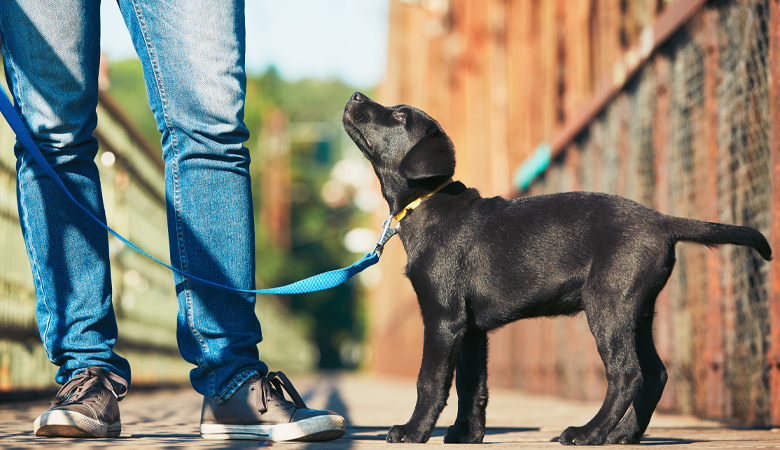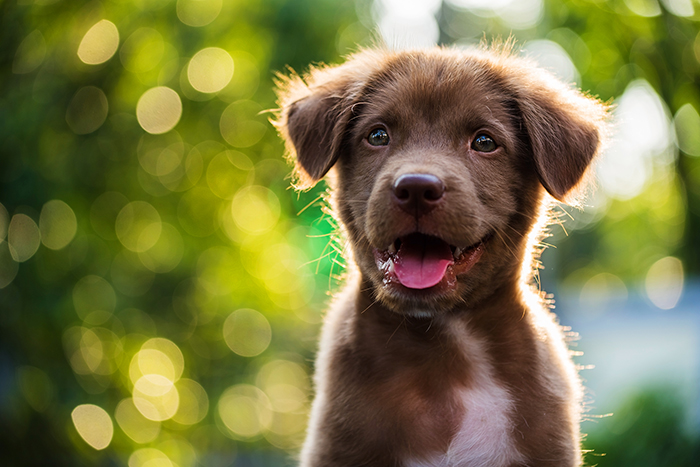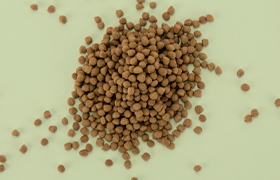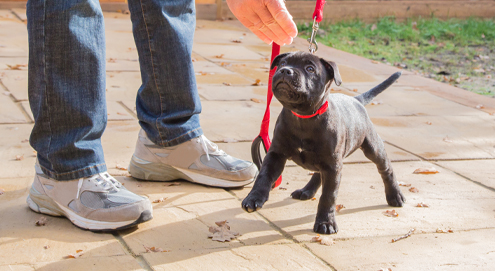An example of training your puppy includes house training. Some breeders already start house training their puppies before they move to their new home, so make sure you ask the breeder what has already been done and how they went about it. To start house training your puppy, they should be walked regularly so there is no time for ‘accidents’ to occur. Once they successfully go to the toilet outside, it is important to reward them. Contrarily, you should not punish them for ‘accidents’ because they will either see it as a form of attention and do it again, or they could interpret it as not being allowed to urinate near their owner and, as a result, will refuse to go to the toilet outside as well. In case of accidents, Urine Off Dog can be used to eliminate smells and stains.
Training
There are lots of puppy-classes available to start training your new pet. As puppies learn quickly, it is advisable to follow a puppy class and reward them when they follow a command. Contrary to common belief, bad behaviour should be ignored and no attention should be given to the puppy until his behaviour improves. If desired, you can say “no” clearly but make sure that you use a low tone of voice as dogs consider long, high notes to be a reward. Whichever of the two methods you choose, make sure you stay consistent. It is recommended that you take your puppy with you everywhere you go to ensure that they get used to other people, dogs, surroundings and everyday situations. Again, the breeder might already have started training the puppy so discuss the commands and methods that they might have used.
Spaying and Castration
Subsequently, you are going to have to choose whether you want your dog to be castrated (removal of testicles), or spayed (removal of ovaries). This procedure ensures that there will no longer be any secretion of sex hormones or possibility for reproduction. Castrating males has both behavioural advantages, as dogs will run away less, become more affectionate and easier around other dogs and people; and medical advantages, as they are less likely to develop prostate problems and anal tumours and unable to get testicular tumours. Spaying females is highly advisable as it significantly reduces the risk of an infection of the uterus, mammary gland tumours and diabetes at a later stage.
Dental Care
Like humans, puppies have milk teeth until they are approximately four months old after which they get their permanent teeth. Whilst they are changing teeth, it might be difficult for them to eat dry food. It is important to start dental care on time, to avoid common dental problems later on.
Exercise
Exercise is very important for young dogs as it stimulates muscle development and healthy joints and bones. However, make sure that you do not over-exercise them but build up exercise, like walks, gradually. The amount of exercise your puppy needs depends on their breed and age.
Food
A healthy, balanced diet is essential for building strong bones for growth and a shiny coat. Until the dog reaches twelve months (a little sooner for large breeds), special puppy food is recommended.









